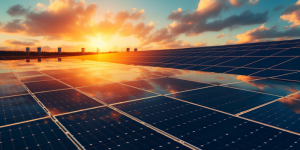The IEA's 5 recommendations for a sustainable energy future
Strengthening Sustainability in Critical Mineral Supply Chains Will Be Fundamental for a Sustainable Energy Future

The security, reliability, and resilience of critical mineral supply chains are essential for a sustainable future, but they cannot be achieved without a concrete commitment to sustainability and responsibility.
These are the statements of the International Energy Agency, which has identified 5 key recommendations for policymakers.
Sustainable energy future: the role of governments and companies
Implementing sustainable and responsible practices in supply chains not only helps mitigate these risks but also allows for the development of stronger and more resilient communities that can benefit economically and socially from mining development.
At the same time, such practices enhance supply security by reducing the risk of disruptions caused by local opposition, environmental disputes, or corruption issues.
The role of governments and companies in this context is crucial. Companies have the responsibility to adopt sustainable practices and to be transparent about their progress in this area. Concurrently, governments can play a key role in ensuring that companies have adequate incentives to pursue these practices and create a conducive environment that facilitates continuous improvement in environmental and social performance.
The IEA's 5 key recommendations
To address these objectives, the IEA has identified 5 key recommendations for policymakers:
-
Strengthening Legal and Regulatory Protections: It is essential to ensure robust protections for the environment, workers, and communities. This means reviewing and updating existing regulatory frameworks to adapt to the changing landscape of critical minerals, including stricter environmental protection requirements and significant engagement with local communities.
-
Incentives Through Public Spending: Governments can use public spending as a lever to encourage the development of sustainable practices and reward companies that demonstrate a commitment to social and environmental responsibility.
-
Data Collection and Reporting: Strengthening the collection and analysis of standardized and granular data is fundamental to enable effective benchmarking and monitoring of progress in the sector.
-
Supply Chain Transparency: Companies should be encouraged or required to enhance transparency along the entire supply chain, adopting due diligence and making risks and mitigation actions public.
-
Development of Voluntary Sustainability Standards: It is important to support the development and adoption of credible and voluntary sustainability standards, consistent with international standards.
These recommendations, if adopted, can ensure that critical mineral value chains are not only sustainable and responsible but also resilient and secure, key elements for an effective transition to a cleaner and more sustainable energy future.
Related Focus





